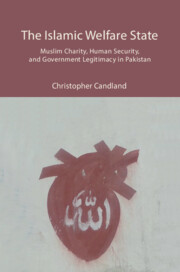Book contents
- Frontmatter
- Dedication
- Contents
- List of Illustrations
- Preface
- Note on Translations and Transliterations
- List of Abbreviations
- Part 1 Introduction
- Part 2 Piety and Public Goods
- Part 3 Pakistan
- Part 4 Charities
- Part 5 Religion, State, and Public Goods
- Afterword
- Acknowledgments
- Appendix: Charities Studied
- Glossary
- References
- Index
1 - Islam and the Social Welfare Ideal
Published online by Cambridge University Press: 30 April 2024
- Frontmatter
- Dedication
- Contents
- List of Illustrations
- Preface
- Note on Translations and Transliterations
- List of Abbreviations
- Part 1 Introduction
- Part 2 Piety and Public Goods
- Part 3 Pakistan
- Part 4 Charities
- Part 5 Religion, State, and Public Goods
- Afterword
- Acknowledgments
- Appendix: Charities Studied
- Glossary
- References
- Index
Summary
To you has come an Apostle from among you. Any sorrow that befalls you weighs upon him; He is eager for your happiness, full of concern for the faithful, compassionate and kind.
—Quran 9:128Religion has been said to consist in that of which we are assured; but it is partly that which we hope or even that which we dream, and perhaps the influence of the hope and the dream is greater than that of the certainty.
—William Hale WhiteIn the early twenty-first century, welfare services in much of Africa, the Americas, and Asia resemble that of North America and Western Europe in the early nineteenth century, a century before the emergence of the modern welfare state. Communities of faith provide the bulk of welfare services in much of the world. Religious associations organize elementary schools, health clinics, and relief camps for their own communities and others. Many people in low-income countries must provide essential welfare services for themselves. This includes education, healthcare, and emergency assistance. Government commitments to public services in many countries are too low to meet the most basic needs, medical and educational, of millions of people. In many places, religious charities are the only providers of formal education, professional healthcare, emergency assistance, and disaster relief. Religious charities work to improve the well-being of millions of people daily and keep millions of people alive annually. Worldwide, the religious charitable sector provides basic education and healthcare to hundreds of millions of people.
In many countries, some government officials and military officers have created a welfare state for themselves but not for ordinary citizens. As a result, national cohesion in these countries must rely more on nationalism and patriotism than on the demonstrated commitment of government to provide welfare services and the reciprocal commitment of the citizenry to consent to taxation and obedience to the rule of law. In Pakistan, the private religious welfare sector provides education and health services to millions of people every year. Government hospitals and government schools are the least preferred option. The services of the private religious sector often exceed in quality the services of the government. Further, the Islamic social welfare sector probably serves more people than does the government.
- Type
- Chapter
- Information
- The Islamic Welfare StateMuslim Charity, Human Security, and Government Legitimacy in Pakistan, pp. 1 - 18Publisher: Cambridge University PressPrint publication year: 2024

